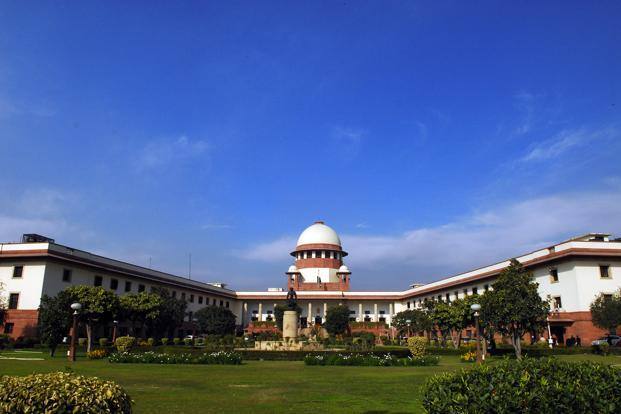Case title: Maharashtra State Electricity Distribution Co. Ltd. VS M/s JSW Steel Ltd. & Anr.
Case no: CIVIL APPEAL NO. 8413 OF 2009
Order on: 17 May, 2024
Qoram: HONOURABLE JUSTICE ABHAY S. OKA WITH HONOURABLE JUSTICE UJJAL BHUYAN
Fact of the case:
The appellant is Maharashtra State Electricity Distribution Co. Ltd., a company responsible for distributing and supplying electricity across Maharashtra. The 1st respondent is M/s JSW Steel Ltd., a large steel industry and significant consumer of electricity supplied by the appellant. In a tariff order dated 20th October 2006, the Maharashtra Electricity Regulatory Commission imposed additional supply charges for uninterrupted power supply to bulk consumers, including the 1st respondent. This order was later discontinued by another tariff order on 20th June 2008, which also directed the appellant to refund the additional supply charges collected during 2006-07 and 2007-08. The appellant filed a petition with the Commission under the Electricity Act, 2003, seeking approval to recover reliability charges for implementing Zero Load Shedding (ZLS) in the Pen Circle area. A public hearing was conducted, and the Commission approved the petition on 15th June 2009, imposing the reliability charge from 16th June 2009 to 31st March 2010 on all consumers in the area, including the 1st respondent. The 1st respondent appealed against the Commission’s order to the Appellate Tribunal for Electricity, which set aside the Commission’s order. The appellant then brought the case to the Supreme Court.
Issues framed by court:
- Whether the 1st respondent was liable to pay the reliability charge.
Legal provisions:
- Section 62(3) of Electricity Act, 2003: Deals with the determination of tariffs by the Commission and the conditions under which different tariffs can be imposed for different consumer classes.
- Section 111 of Electricity Act, 2003: Which provides the right to appeal against the orders of the Commission to the Appellate Tribunal for Electricity.
Contentions of Appellant:
The appellant argued that the imposition of a reliability charge was legal and within the powers of the Maharashtra Electricity Regulatory Commission under the Electricity Act, 2003. They pointed out that similar charges were already being levied in other areas like Pune, Baramati, Vashi, and Thane. They claimed that the 1st respondent did not participate in the public hearing about the reliability charge, implying that they had given their consent to pay the charge. The appellant argued that if the respondent had any objections, they should have raised them during the hearing. The appellant stated that the 1st respondent benefited from uninterrupted power supply due to ZLS and thus was rightly liable to pay the reliability charge. They emphasized that this charge was for a limited period and that the 1st respondent, being a major consumer, should have participated in the public hearing. The appellant noted that the 1st respondent consumed about 45% of the electricity in the Pen Circle area and should, therefore, be subjected to the same reliability charge as other HT industrial consumers in similar areas.
Contentions of Respondents:
The 1st respondent argued that they were already paying a higher tariff because they were classified as a continuous process industry. They contended that this higher tariff was meant to cover the cost of uninterrupted power supply, making the additional reliability charge unnecessary and unjustified. The respondent rebutted the claim that they did not raise objections, pointing out that the Vidharba Industries Association, of which they were a member, had filed an affidavit raising objections during the public hearing. The 1st respondent asserted their right to appeal the Commission’s order under Section 111 of the Electricity Act, 2003, arguing that being directly affected by the charge gave them the locus standi (the right to bring the case) regardless of their participation in the public hearing.
Court analysis & Judgement:
The Supreme Court agreed with the respondent that the higher tariff already compensated for the uninterrupted power supply. This higher rate was set specifically for continuous process industries like the 1st respondent and made the additional reliability charge redundant. The court found no statutory basis in the Electricity Act, 2003, or any rules or regulations that supported the imposition of the reliability charge. The appellant failed to demonstrate how the charge was justified under the existing legal framework. The court acknowledged that the Vidharba Industries Association, which represented the 1st respondent, had indeed raised objections during the public hearing. This participation was sufficient to preserve the 1st respondent’s right to challenge the reliability charge. The court upheld the respondent’s right to appeal under Section 111 of the Electricity Act, 2003. It clarified that non-participation in a public hearing did not negate their right to appeal if they were directly affected by the Commission’s order. The Supreme Court dismissed the appeal by the Maharashtra State Electricity Distribution Co. Ltd., agreeing with the findings of the Appellate Tribunal. The court ruled that the 1st respondent should not be subjected to the reliability charge since they were already paying a higher tariff for uninterrupted power supply. The imposition of the reliability charge was deemed unjustified and unsupported by any statutory provision.
“PRIME LEGAL is a full-service law firm that has won a National Award and has more than 20 years of experience in an array of sectors and practice areas. Prime legal fall into a category of best law firm, best lawyer, best family lawyer, best divorce lawyer, best divorce law firm, best criminal lawyer, best criminal law firm, best consumer lawyer, best civil lawyer.”
Judgement Reviewed By- Antara Ghosh


